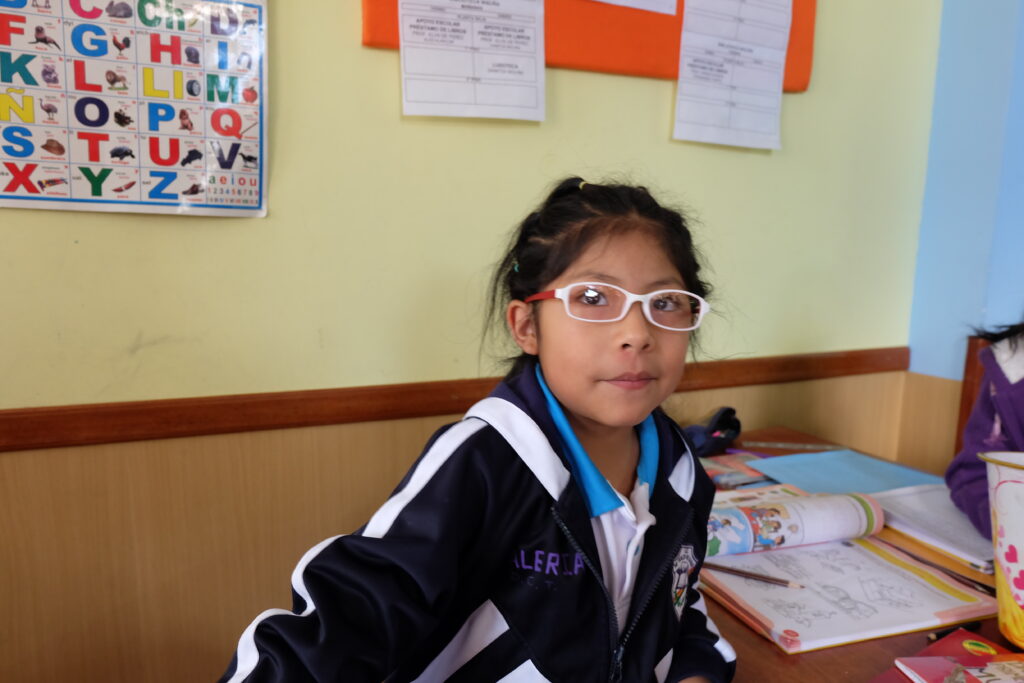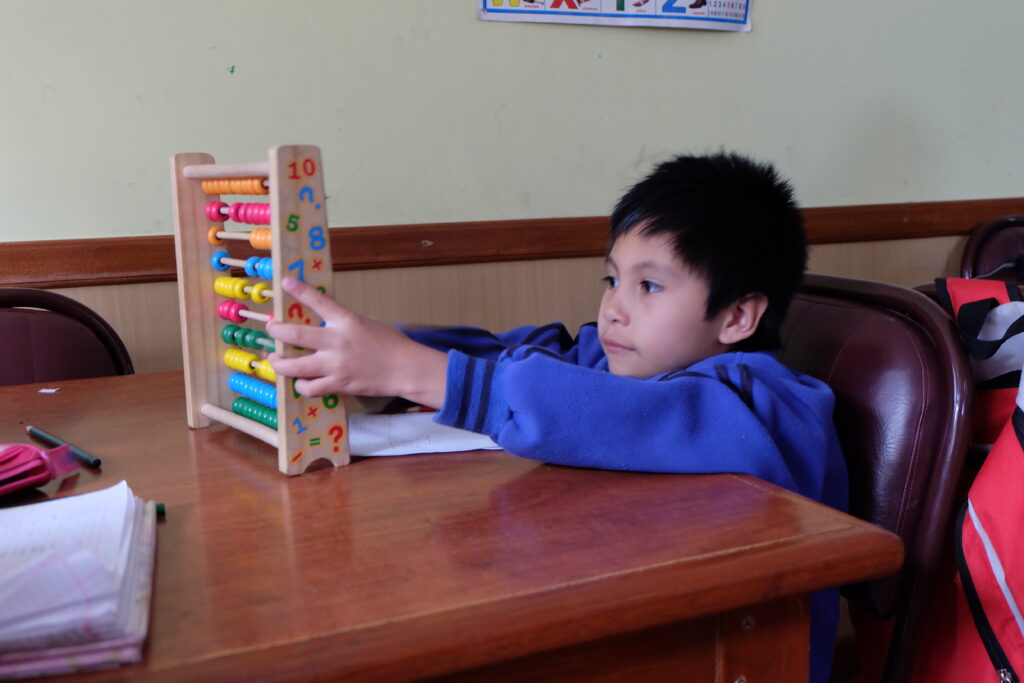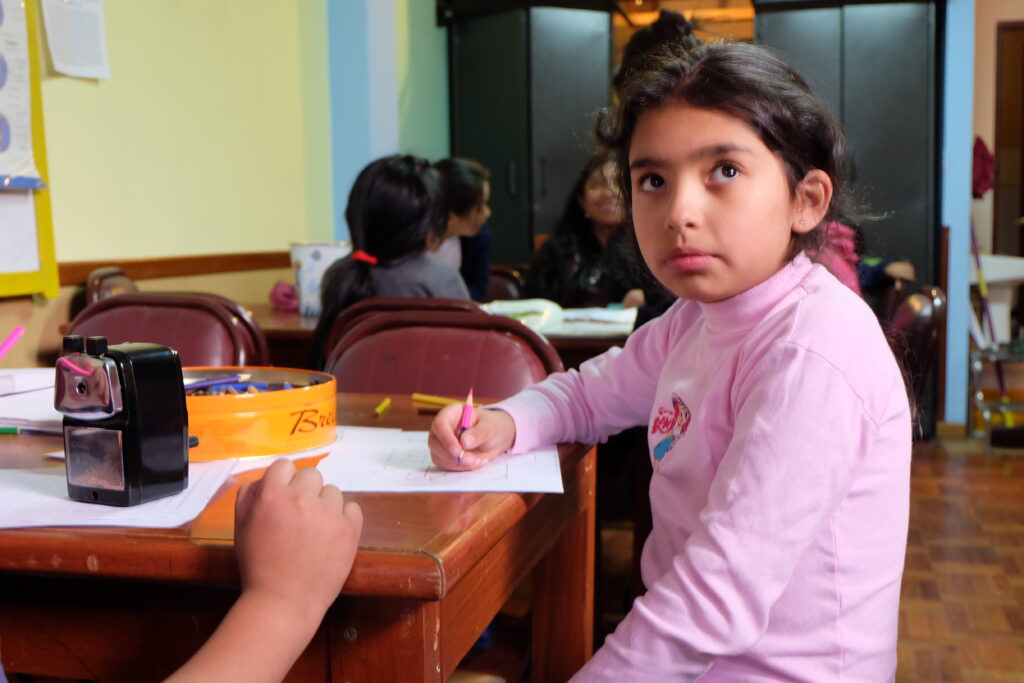facts about the Pedro Poveda School:
- Grades Served: Kindergarten – twelfth grade
- Facility Description: A three-story recreational facility that will offer extracurricular activities and games, including a dance/theater space and a library is under construction.
- Education: Instruction includes core academic subjects such as English, physics, chemistry, grammar and history. The school also offers computer education classes, music, dance, gymnastics and vocational skills training in carpentry, sewing and basic electricity.
- Academic Year: Typically begins in early February and ends in early December. Students enjoy summer break from mid-December through the end of January, and a two-week winter break in July.
- Parental Involvement: Most parents are actively involved in their child’s education, attending meetings on citizen rights and responsibilities, childcare, health, alcoholism and self-esteem.
- Nutrition: Nutritional meals are provided at the school each day.
- Medical Care: Medical treatment, medicine and eyeglasses are provided as needed.
The small, landlocked nation of Bolivia comprises rugged Andes mountains and vast, high-altitude plateaus to the west (including a portion of Lake Titicaca, the largest high-altitude lake in the world) and lush, lowland plains of Amazon jungle to the east. Despite its wealth of natural beauty and resources, Bolivia bears the scars of centuries of conflict, beginning with the Spanish conquistadors and followed by almost 200 years of wars and internal military coups. Political and economic instability have brought about considerable poverty, resulting in widespread malnutrition, crime and disease. This is perhaps most evident in Bolivia’s administrative capital. At 12,000 feet above sea level, La Paz is the highest capital city in the world.
One of the city’s most impoverished areas is its slum neighborhood Villa Armonía. With no sanitation or potable water, disease and malnutrition run rampant here. Moreover, this area is located in a “black zone,” where landslides capable of demolishing several residential blocks at a time are common. For this reason, the Pedro Poveda School serves as a beacon of hope and a refuge to the children and families of this needy community. The school provides the impoverished children of this community with a clean, safe environment where they receive a well-rounded education — the key to breaking the cycle of poverty — and the encouragement to rise above the difficult socioeconomic circumstances from which they come.
Facts about Bolivia:
- Population: 11,324,032
- Languages Spoken: Spanish (official) 60.7%, Quechua (official) 21.2%, Aymara (official) 14.6%
- Unemployment Rate: 3.4%
- Poverty Rate: 36.4%



